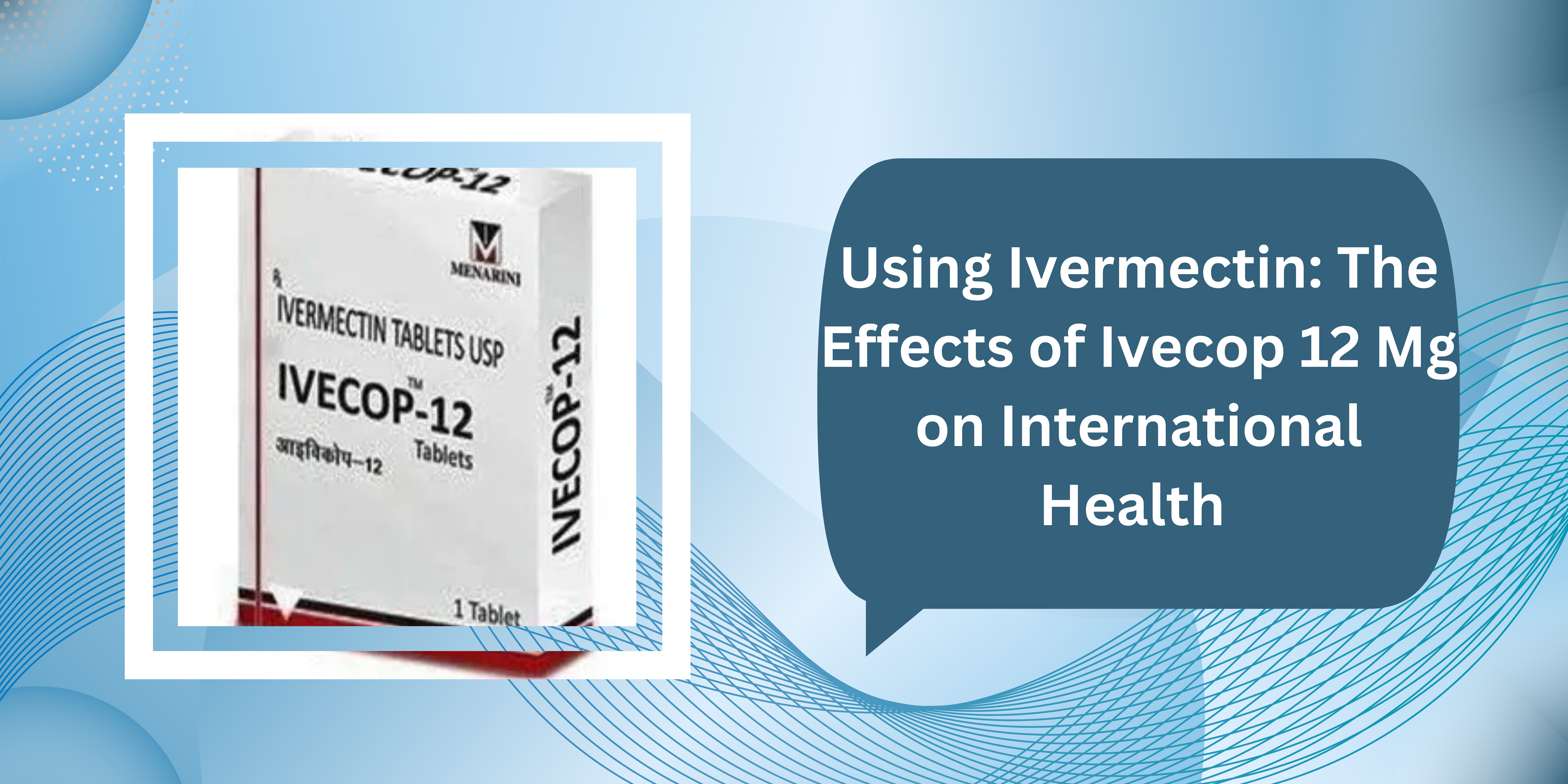Using Ivermectin: The Effects of Ivecop 12 Mg on International Health

Using Ivermectin: The Effects of Ivecop 12 Mg on Global Health
Ivermectin
a medicine normally used to treat parasitic infections, has received a lot of attention in recent years because of its extensive prospective applications. One of the formulations, Ivecop 12 mg, is critical to global health, particularly in developing countries where parasitic illnesses are still widespread. This article investigates the effects of Ivecop 12 mg on world health, including its mechanisms, applications, and implications for public health policies.
Understanding Ivermectin.
Ivermectin was first launched in the late 1970s and quickly became a standard treatment for illnesses like river blindness (onchocerciasis) and lymphatic filariasis. It operates by binding to glutamate-gated chloride channels, which causes paralysis and death in sensitive parasites. Its safety profile and efficacy have made it popular among healthcare practitioners, especially in resource-constrained situations.
Ivecop 12 Mg: Formulation
Ivecop 12 mg is a specialized ivermectin formulation intended for easy administration and targeted treatment. The “12 mg” dose enables successful therapy while reducing the risk of negative effects. The availability of this formulation has been critical in mass drug administration (MDA) programs aimed at lowering parasite disease burdens.
The global burden of parasitic infections
Parasitic illnesses continue to be a major public health issue, especially in tropical and subtropical areas. Millions of people suffer from diseases including onchocerciasis, lymphatic filariasis, and soil-transmitted helminthiasis, which cause substantial morbidity and economic costs. The World Health Organization (WHO) estimates that over a billion people need treatment for these infections, making effective interventions crucial.
Ivecop 12 Mg in Public Health Strategies by
The Mass Drug Administration.
One of the most powerful applications of Ivecop 12 mg is in mass drug administration programs. These programs seek to provide preventive therapy to entire populations in endemic areas, therefore considerably reducing the occurrence of diseases such as onchocerciasis and lymphatic filariasis. The method has been extremely successful in nations such as Ghana and Nigeria, where the prevalence of chronic diseases has substantially decreased.
Community-based approaches
Community interaction is critical for the successful implementation of MDA initiatives. Training local health workers to distribute Ivecop 12 mg improves coverage while also building trust in communities. This grassroots approach empowers local communities and increases commitment to treatment methods.
Efficient and safe Profile
Efficacy
Numerous studies have shown that Ivecop 12 mg is effective in the treatment of a variety of parasitic illnesses. For example, a research in Africa found that broad administration of ivermectin reduced the prevalence of river blindness significantly. Furthermore, the medicine is effective in treating various illnesses such as scabies and worm infections.
Safety profile
Ivermectin is generally well tolerated, with only mild side effects recorded in some circumstances. Common side effects include dizziness, nausea, and weariness, which usually resolve rapidly. Serious adverse reactions are uncommon, making Ivecop 12 mg an ideal choice for MDA programs. Monitoring and reporting systems are critical in identifying possible problems in large-scale applications.
Challenges and considerations
Drug Resistance
One of the most serious risks about using ivermectin is the possibility of developing medication resistance. Continuous monitoring and study are required to ensure that Ivecop 12 mg remains effective in treating parasite infections. To mitigate this risk, alternative treatment options may be required, such as drug rotation.
Accessibility and supply chain issues
While Ivecop 12 mg has proven to be effective, many areas still lack access to it. MDA programs rely heavily on a dependable supply network and the ability to overcome logistical challenges. Governments, NGOs, and international organizations can work together to address these concerns.
Cultural sensitivity
Cultural ideas and customs can influence how Ivecop 12 mg is accepted in communities. Health communication tactics that are tailored to local cultures and values can help increase treatment uptake. Engaging community leaders and influencers is critical to overcoming skepticism and promoting public health efforts.
Cultural sensitivity.
Cultural ideas and customs can influence how Ivecop 12 mg is accepted in communities. Health communication tactics that are tailored to local cultures and values can help increase treatment uptake. Engaging community leaders and influencers is critical to overcoming skepticism and promoting public health efforts.
Future of Ivecop 12 Mg in Global Health:
Expanding Applications.
Ivermectin research for larger applications is ongoing. Promising research are looking into its effectiveness against viral infections, particularly new illnesses. While further evidence is needed, these investigations have the potential to transform Ivecop 12 mg’s significance in global health beyond parasitic illnesses.
Integration of Healthcare Systems
For Ivecop 12 mg to have a long-term impact, it has to be integrated into national healthcare systems. This integration entails training healthcare practitioners, developing treatment protocols, and guaranteeing consistent drug availability. Collaboration with international health groups can boost the efficacy of these programs.
Conclusion
Ivecop 12 mg marks a significant step forward in the fight against parasitic illnesses and contributes to global health efforts. Its role in mass medication administration initiatives has resulted in significant public health benefits, particularly in endemic areas. While problems persist, Ivecop 12 mg’s continuous dedication to research, accessibility, and community engagement will guarantee that it remains an important tool in improving global health outcomes. Looking ahead, the possibility for broadening its applications provides optimism in the global battle against infectious diseases.
Category: Healthcare
